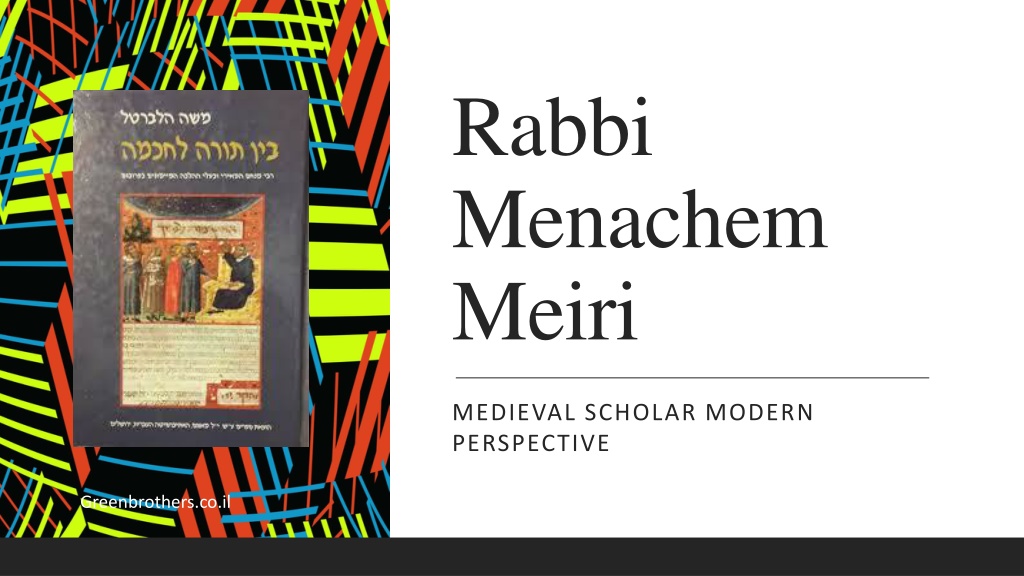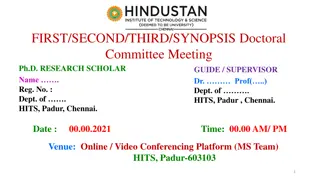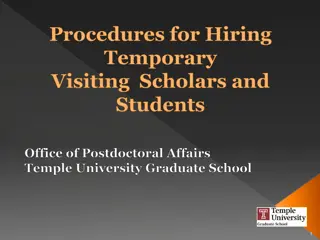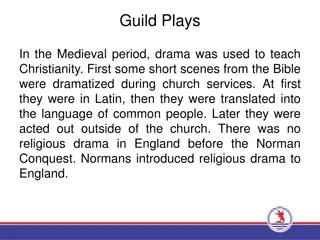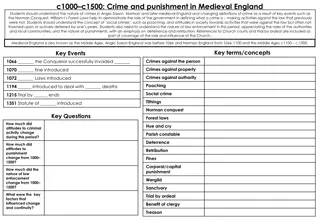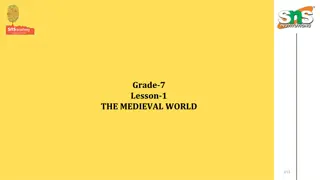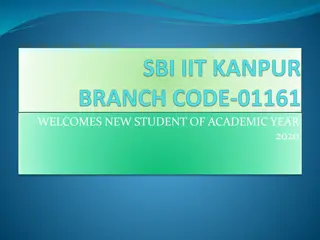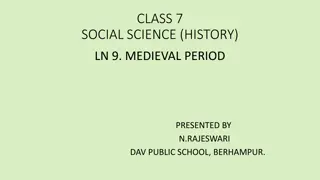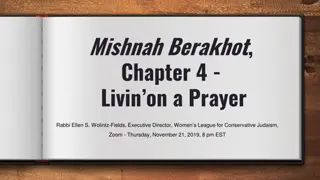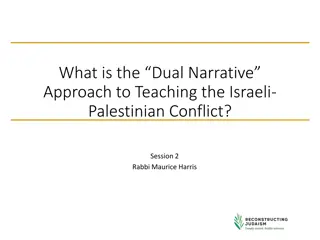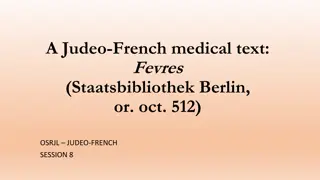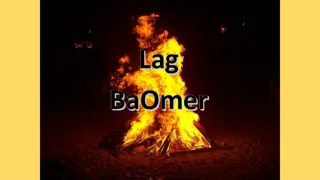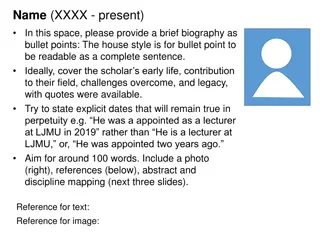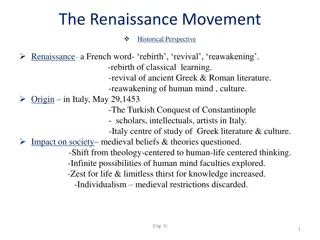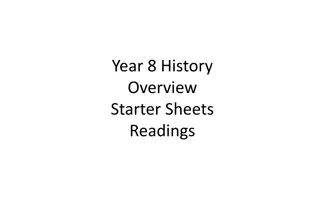Rabbi Menachem Meiri: Medieval Scholar with a Modern Perspective
Rabbi Menachem Meiri, a medieval scholar from France, lived a challenging life but left a lasting impact with his written works on repentance, Torah scrolls, and customs. Through his teachings, he emphasized the importance of a contrite heart in true repentance.
Download Presentation

Please find below an Image/Link to download the presentation.
The content on the website is provided AS IS for your information and personal use only. It may not be sold, licensed, or shared on other websites without obtaining consent from the author. Download presentation by click this link. If you encounter any issues during the download, it is possible that the publisher has removed the file from their server.
E N D
Presentation Transcript
Rabbi Menachem Meiri MEDIEVAL SCHOLAR MODERN PERSPECTIVE Greenbrothers.co.il
A Few Biographical Details Generally Called- Rabbi Menachem ben Shlomo HaMeiri He refers to his father as a Torah Scholar- There is evidence that his father passed away when he was young Meiri- comes from a prominent ancestor named Meir He was also known as Don Vital Solomon Mayer (from a debt contract) Born in 1249, most likely near Perpignan, France where he spent most of his life. Family- He refers to several great Provencal Torah Scholars as his Grandfather including Rabbi Avraham ibn Daud Teacher, Rabbi Reuven ibn Chain (Sefer HaTamid) Contemporary of Rabbi Shlomo Ibn Aderet- Known as the Rashba
Difficult Life Intro to Pirkei Avot From the time of R Chananel, the wisdom of the Sages has decreased, and the importance of written works has increased. For the time of the passing of R Hai, tragedies have increased, and the hearts of men have been stolen away toward the [secular] world from the multitude of needs due to taxes, duties, and the pressures of the nations upon us Intro to Kiryat Sefer When G-d caused me to wander from my father s house, when his anger poured down upon me and his wrath destroyed my surroundings. He led me through darkness not light, he put my son as refugees and my daughters in captivity
Written Works - Chibur HaTeshuvah- Written on Repentance, the laws of Rosh Hashanah, Yom Kippur and mourning - Kiryat Sefer- Laws of Writing Torah Scrolls - Magen Avot- A Work defining Provencal Customs from the suggested modifications by Spanish Rabbincal students of the Ramban - Commentary on Proverbs - However, his seminal work is known as Beit HaBechirah - Chosen House- on the Babylonian Talmud
Meiri on Teshuva Tehillim 52:19 (JPS Tanakh 1985) True sacrifice to God is a contrite spirit; God, You will not despise a contrite and crushed heart. Meiri, Chibur HaTeshuvah, Meishiv Nefesh 1:1 The essence of Teshuvah and its foundation and root and character is the submission of the heart, meaning when the human heart stands from heaven and trembles and mourns about his sins, and all the other elements of Teshuvah are branches of this root. That is why the verse only mentions the breaking of the heart and it s submission. For the mourning out that a person will perform on account of his sin is what will frighten him and bring him to awaken to repentance, and if he is not hurt and doesn t fear his sin no cause will wake him and he will remain immersed in his actions
A Groundbreaking Commentary Meiri attempted to bridge the gap between Maimonides focused, concise Mishnah Torah and classic, detailed, esoteric Talmudic commentary: Intro to Meiri And that it is a more pleasant way for a man by nature to obtain knowledge of things from the inquiry and search and examination of the things with the most contradictory end than to obtain their knowledge through acceptance alone and it did not cool any educated mind until he sees the study of things in their source and origin, and the reasoning of the opposing arguments, and the longwinded back and forth.
A Groundbreaking Commentary And after seeing the source of the things and their root and the matters of their interrogation, he will then desire to know what will come out of them through a ruling and to observe from the study what is the straight path that the person will choose from that matter. And this is the approach that we have chosen in the Talmudic commentaries that we have to clarify the issue completely and without any shortcomings and extend at length everything that is said in it and then clarify through a ruling what should be clarified from it as we noted in our introduction
A Modern Medieval Commentary The Meiri took several innovative measures to make his commentary on the Talmud more accessible to the reader. Introductory Material- 1. Meiri opens each Tractate with a summary of the main topics covered by the tractate and in each chapter 2. He introduces each chapter with a summary. 3. He introduces each Mishna with a summary and elucidates that main concepts discussed in the Talmud. When the Talmud goes on a tangent, he will tell you about it and give you the necessary background material.
Introduction to Tractate Berachot And the matter of the whole Tractate will indeed usually be directed to clarify four esteemed matters. 1. To clarify the nature of the [declaration of] unity that we must declare toward He may He be blessed 2. To clarify the features of the types of prayers we are obligated to pray in front of him everyday 3. To clarify the character of the blessings we are obligated to bless Him upon what every pleasure comes upon us whether through eating, drinking, smell or any other pleasure 4. The character of blessed we are obligated to bless Him upon anything that happens to us whether good or bad, how we do so for each matter, and how we need to contemplate and give thanks for all that reaches us whether we see or hear new things for all is from Him
A Modern Medieval Commentary Writing Style- The Meiri wrote Beit HaBechirah in clear organized prose: Running Commentary which can be read alone or alongside the Talmud. Conceptual Organization- the Meiri isolates each concept discussed in the Talmud and analayzs it separately. He presents different approaches to each issue and clarifies how the interpret the Talmudic text. Questions vs. Conclusions- He separates halachic conclusions from his explanation of the questions and answers of the Talmud into different sections. Language- He writes in a clear simple hebrew with limited usage of Aramaic and rabbinic terminology
A Maimonidean- Meiri on Secular Wisdom From Meiri s letter to Rabbi Shlomo Ibn Aderet defending the study of Secular Wisdom And since the Spirit of God spoke to us when the books of the Rabbi the Righteous Teacher (Rambam) arrived in Israel, we have found in our communities wise men and great men who are famous in Torah and all kinds of virtues, proficient in all Talmudic and Mishnah orders with their hands resourceful in wisdom and its books, and they have found discernment in its wisdom and secrets Many from the sages of the land as well know the wisdom of the Talmud on perfection, [they know] about the constant offerings and additional offerings and innovations and Tosafot according to the law, and yet were proficient in wisdoms whether in all or in most or in some.
A Maimonidean- Meiri on Secular Wisdom Beit HaBechirah on Bava Kamma 83a The language of Greek has already been revealed as the most beautiful language. Nevertheless, it s forbidden to study their wisdom because it attracts a person's heart and destroys many of the fundamentals of religion. Those close to the monarchy, since they need it for many matters in carrying out their royal duties, for they were very attracted to the pursuit of wisdom and they only brought close those who were complete in the wisdoms and whose mind was clear in all matters, they are permitted to learn it
A Maimonidean- Meiri on Secular Wisdom And even the complete sages who have already filled their stomachs with meat and wine, meaning the Torah and Talmud and the secrets of its commandments, you have no one closer to the kingdom than them. After all, it was said: in Me kings will reign and they are allowed to teach it in order to answer them and strengthen the matter of religion with nails so that it will not fall:
Meiri on Monotheistic/Civilized Gentiles See Moshe Halbertal: Edah Journal- Religious Tolerance in The Teachings of The Me iri http://www.edah.org/backend/JournalArticle/halbertal.pdf 3 Types of Laws pertaining to Jewish relations with Gentiles Described in the Talmud 1. Prohibitions on commerce with gentiles that flow from the concern that such commercial contacts promote and indirectly facilitate idolatrous ritual, or cause Jews to benefit from idolatrous ritual or its apparatus. E.g- Business Dealings near Pagan Holidays, Selling Incense to a Non-Jew 2. The second area to be considered is the halakhah s attitude toward a gentile s juridical rights and obligations. This category focuses on the legal and personal standing of the gentile, not on indirect contact with ritual E.g- Returning Lost Objects, Compensation for Damages 3. The third category encompasses measures to distance Jews from gentiles, tied to the ban on intermarriage. E.g Drinking Gentile Wine Meiri was lenient regarding the 1st and 2nd categories toward Nations guarded by the way of religion
Meiri on Monotheistic/Civilized Gentiles Beit HaBechirah Avodah Zarah (Translation from Halbertal ibid.) For it is the common practice in all lands to trade with those among whom they dwell, in all commodities and all manner of commerce, even on their holiday. It seems certain that the reason is that these rules were enacted only for their [i.e. talmudic] times, when the worship of idols was widespread for sacrifice and thanksgiving, as you see in the reference to their festival days, for they worshipped the heavenly host, the sun, the moon, trees, and stones
Meiri on Monotheistic/Civilized Gentiles Beit HaBechirah Avodah Zarah (Translation from Halbertal ibid.) As for the statement in the gemara that a Christian [notsri] is always forbidden [to be traded with], I interpret it as derived from watchers [notsrim] who come from a far country, as stated in Jeremiah [4:16], who referred to that nation as notsrim after [Babylonian King] Nebuchad Nezzar ; and it is known that there was an image of the sun in Babylon and the entire nation of Nebuchad Nezzar worshipped it. And you already know that the sun serves on the first day [Sunday] in the enumeration of the beginnings of days, and that day accordingly was called notsri on account of its connection to Nebuchad Nezzar because of its association with the sun s dominion, all of which is obvious and clear.
Meiri on Women Meiri on Eiruvin 96a You already know that women are exempt from positive time bound mitzvot. So you have also learned that regarding Tefillin, since Shabbat and Yom Tov aren t times [to don] Tefillin, they are time bound positive mitzvot. However, if they want do it, they have permission to, and there is no prohibition of Thou shalt not add for the Torah didn t come to be strict toward them, but rather to be lenient. Meiri on Sotah 20a But all [women] whose piety is proper and sincere, God forbid that any doubt has been said about their purity and many of them have been found to be more fearful of sin and meticulous even more than men
